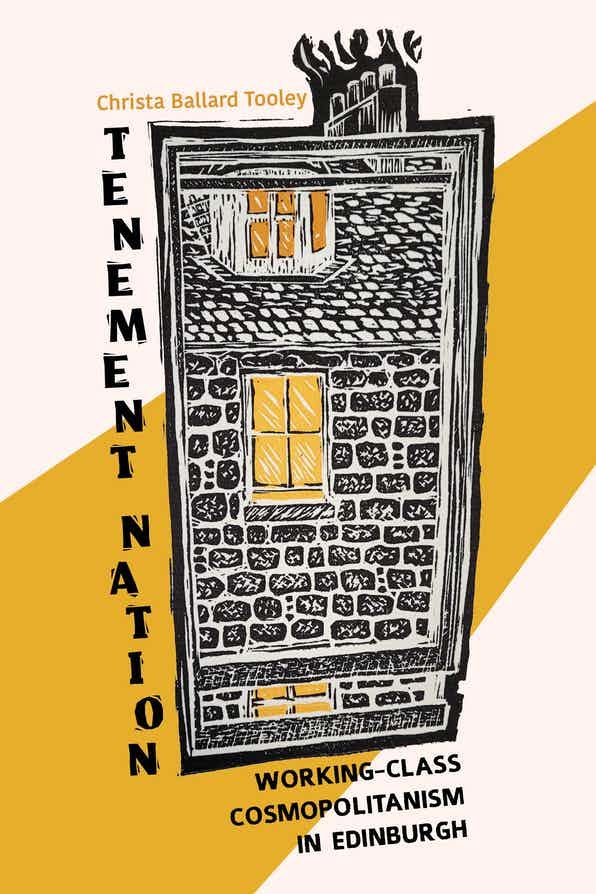When Edinburgh's Canongate community resisted a crass urban development, they deployed a "working-class cosmopolitanism"
This caught our eye - a book out in 2023 (but available for pre-order) titled Tenement Nation: Working-Class Cosmopolitanism in Edinburgh, by Christa Ballard Tooley. We’re obviously interested, from our explorations and demonstrations of what a ‘cosmolocalism’ might mean for 21st century communities.
Here’s the opening promo text:
Around the world, blue-collar politics have become associated with resistance to the multicultural. While this may also be true in Edinburgh, Scotland, a closer look reveals the growth of liberal democratic ideals in the working-class population, which has a much different goal:
How can this European city keep the entrepreneurial forces of globalization from commodifying what is distinctly theirs?
In Tenement Nation, Christa Ballard Tooley explores the battle for a neighborhood called the Canongate in Edinburgh's Old Town. Tooley's insightful study of the working-class Canongate community as they negotiate gentrification plans offers a complex view of class and nation.
The threat of the Canongate's redevelopment motivated many throughout Edinburgh to lend their support to the residents' campaign.
Against such development projects, alliances formed between upper-class heritage supporters and working-class urban residents, all of whom turned to institutions such as the European Union and UNESCO for support in restricting commercial development.
Tenement Nation explores these negotiations between socioeconomic classes and even nationalities to show what Tooley calls a "working-class cosmopolitanism" in pursuit of social, economic, and political inclusion.
More here. To try to glean a little more, we purchased access to this essay by Tooley, “Beauty won’t boil the pot:” Aesthetic discourse, memory, and urban development in Edinburgh. It’s an academic work, but what comes through is the way that the local communities drew on an aesthetic defence against the gentrification plans. Questions of “beauty” might not be driving development, but it did build what we might call cosmolocal alliances.
Tooley, commenting on a “memory exercise” (The Canongate Project) conducted by the working-class neighbourhood affected, notes:
In the final report of the Canongate Project, the Canongate was reframed as a "vibrant community”, whose activities took place amongst the built structures denigrated by the aesthetic discourse of the Caltongate supporters--with particular attention to the buildings intended for demolition in the Caltongate proposal.
Evidencing the significance of aesthetics to the future of this neighborhood, the report made explicit the concerns of Canongate campaigners, as in this quote by a Canongate resident who invokes aesthetic discourse that links the appearance of the Canongate to its historical significance:
I just hope the planning that's going on with the Canongate is going to work. I just hope it doesn't take anything away from the Canongate and its looks and its history. That's a major thing that’s upsetting so many people. Changing the historic Royal Mile like that.
In the Canongate resident campaign, the "looks" of the Canongate were closely identified with its "history." The aesthetic of the Canongate neighborhood, though it reflected a municipal neglect they decried, provided a frame of place memory through which the largely working-class residents had appropriated that place, and situated themselves within its history.
In response to an emergent aesthetic discourse of dispossession, or "uncreative forgetting”, supporting the redevelopment of their neighborhood, the reminiscence project celebrated the built environment of the Canongate. It preserved memories as heritage artefacts of working-class residents' appropriation of that place.
More here (and see the protest literature from this article posted below). It’s fascinating to see how memory and history can be invoked as a resource to draw on, as communities negotiate development. A claim for “heritage” status can resist the percieved “crassness” of development, which can unite protest across otherwise disjunct socio-economic classes.


